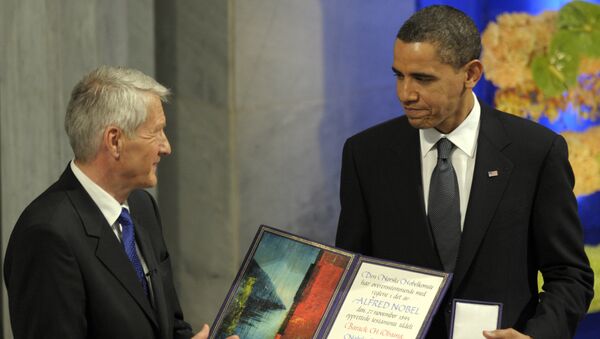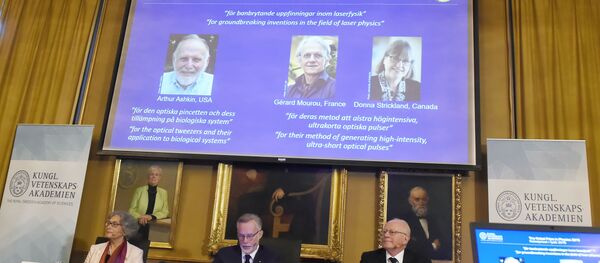Aung San Suu Kyi
In 1991, Myanmar’s State Counselor Aung San Suu Kyi won the Nobel Peace Prize for “her non-violent struggle for democracy and human rights.” Over the past few years, she’s been criticized for failing to speak out against the military crackdown on Rohingya Muslims – something which UN investigators have described as mass killings with “genocidal intent.”
READ MORE: Canada Strip Myanmar’s Aung San Suu Kyi of Honorary Citizenship — Reports
Despite the mounting pressure, the Norwegian Nobel Committee ruled out any possibility of stripping Kyi of the Peace Prize. Meanwhile, the head of the Nobel Foundation, Lars Heikensten, said that it wouldn’t “make sense to try to withdraw prizes”: “It would involve us in constant discussions about the merits about what people are doing afterwards, after they have received the prize.”
Barack Obama
Just a week before his flight to Oslo, he announced he was sending 33,000 more troops to Afghanistan as part of his “surge policy.”
While accepting the prize, he addressed the paradox of receiving the award for peace, while escalating the war in Afghanistan and continuing one in Iraq: “But perhaps the most profound issue surrounding my receipt of this prize is the fact that I am the commander-in-chief of a nation in the midst of two wars.”
Yasser Arafat
Palestinian leader Yasser Arafat shared the 1994 Nobel Peace Prize with Israeli Prime Minister Yitzhak Rabin and Israeli Foreign Minister Shimon Peres for their work on the Oslo Peace Accords, which created “opportunities for a new development toward fraternity in the Middle East.” The decision drew much criticism, with a member of the awards committee, Kare Kristiansen, resigning in protest, dismissing the Palestinian as a terrorist.
READ MORE: Six Palestinian Protesters Reportedly Killed by Israeli Fire in Gaza Clashes
Such an achievement, however, failed to stop Israel and the Palestinian Authority from further escalation, which climaxed in a violent uprising against the Israeli occupation, known as the second intifada (2000-2005).
Liu Xiaobo
The awarding of imprisoned Chinese dissident Liu Xiaobo for “his long and non-violent struggle for fundamental human rights” in 2010 led to a diplomatic standoff between Norway and China.
After the committee announced Liu’s win, Chinese authorities demanded that Norway apologize, but the latter responded that the decision-making process did not directly involve the Norwegian government. It took six years before the two countries managed to put their relations back on track.
Jean-Claude Arnault
French-Swedish photographer Jean-Claude Arnault is neither a Nobel Prize nominee, nor a winner – he’s the man at the epicenter of a rape scandal that prompted the Swedish Academy to cancel this year’s Nobel Prize in Literature. Most recently, Arnault, whose wife is a member of the academy, was sentenced to two years in prison for raping a woman in 2011.
READ MORE: Haruki Murakami Withdraws His Nomination for Alternative Nobel Award — Reports
The New Academy Prize in Literature, the winner of which will be announced on October 12, was established as an alternative to the Nobel Prize.




